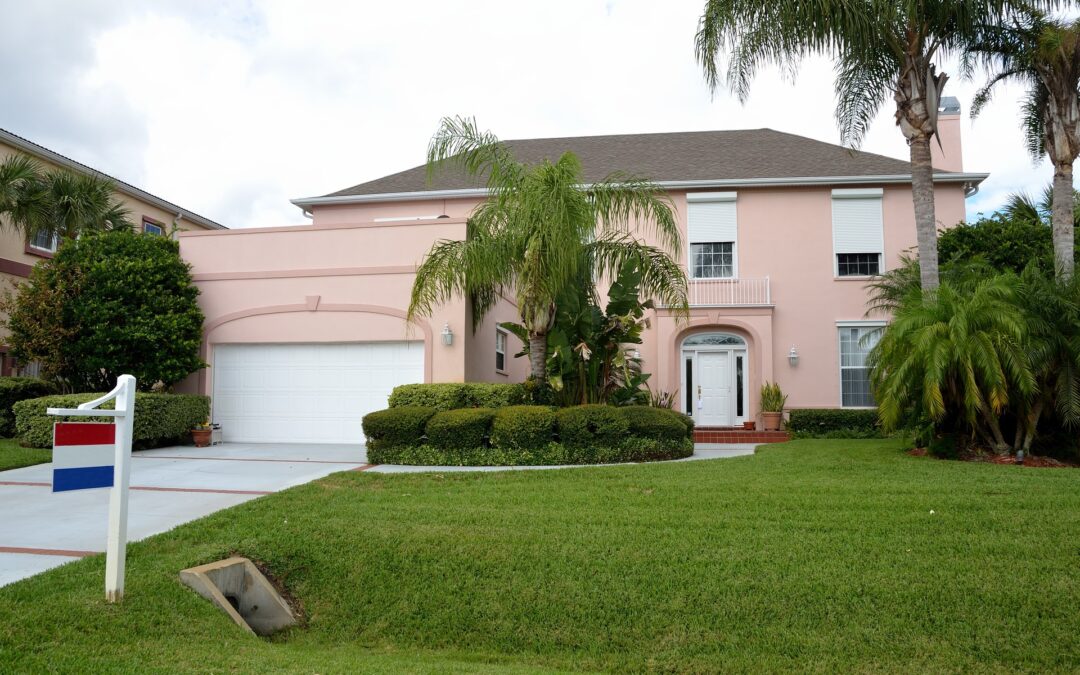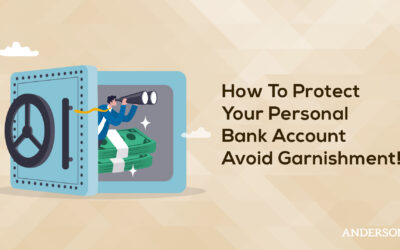Updated October 1, 2021
Buying a foreclosed home presents a great real estate investment opportunity. Foreclosed homes can be renovated and put back on the market or turned into a rental property.
How to Buy Foreclosed Homes
- Find a Foreclosed Home
- Run the Numbers
- Make Competitive Offer
- Renovate the Property
- Decide: Renting or Flipping
Most homeowners do not own their property outright, but have taken out a mortgage loan from a traditional banking institution to pay for it. In return, the homeowner must make their monthly mortgage payment. If several monthly payments go missed, the bank or lender will likely initiate foreclosure proceedings and collect the property as collateral. In most cases, the bank or lender is not interested in keeping the property and paying to maintain it. So, they will attempt to unload the property to a willing buyer at a foreclosure auction.
A home auction is a great way for a real estate investor to get a steeply discounted piece of property, making the margin for profit more alluring. Typically, investors will buy a foreclosed property unloaded at a fraction of its potential value, fix up the home, and put it back on the market to make capital gains. Though home flipping is a common investment goal with foreclosed properties, renovating a foreclosed home into a rental property is also a lucrative long-term investment.
The nature of dealing with foreclosed properties varies from neighborhood to neighborhood, but most real estate investors involved in foreclosures or home flipping will tell you that they usually need to put a decent amount of work into the property. A foreclosed home may be in disrepair, either because it’s been abandoned for some time or because the previous owner, as they were in the process of defaulting on their financial obligation of paying off their loan, let the property fall into disrepair. Either way, investors working with foreclosures should expect that the properties they’ll deal with will need some work.
How to Buy Foreclosed Homes
If you’re interested in buying a foreclosed home for the real estate investment potential, follow these five steps:
1. Find a Foreclosed Home
One of the easiest ways to find foreclosed homes is to make friends with real estate agents who deal with foreclosed properties. Many times, an experienced real estate agent will be able to tell you about available properties before they go to auction. And many times, if you are a cash buyer, you can purchase the home from a bank or lender before other investors know about it. Barring that option, you can look online at foreclosure sites or other real estate market sites to see foreclosed homes and when they are being auctioned. You can also drive around the neighborhood and look for signs about upcoming public auctions.
2. Run the Numbers
Foreclosures can be a costly money pit for investors who don’t know what they are doing. You will want to look and see what comparable homes in the neighborhood sell or rent for (called comparables or comps). Then you will need to figure out how much the home will cost in total to get up and running to sell or rent, including any necessary repairs.
This is where it helps to know a good home inspector and contractor who can help you, even on short notice. When you run the numbers, don’t forget to include items like annual property tax if you are renting or capital gains tax if you are flipping houses. Can you legally turn a single family home into two or three units? If so, the numbers start to look more attractive, and this is a path that many investors take if they can.
Join our Infinity Investing Workshop to learn more about the best investing strategies to create financial wealth and independence.
3. Make Competitive Offer
Most foreclosed homes change hands with actual cash. In fact, in most cases you cannot even initiate a conversation about buying a foreclosure unless you have proof that you have the cash on hand, or at least a portion of it. In many cases, your bank can give you a signed letter stating that you have a certain amount of cash on reserve for this purpose, and you can present that letter at an auction or in discussions with a listing agent. Your offer will need to be competitive if you are trying to drive away competition, but remember not to bid for something so high that you’ll end up losing money.
Note that the process for owning a bank owned home might be slightly different from a judicial foreclosure in your neighborhood. A judicial foreclosure is when the mortgage lender does not have the power of sale, and the foreclosed home is sold by the courts.
4. Renovate the Property
Once you’ve made your offer and the sale is a done deal, it’s time to get to work and renovate the property. Many real estate investors make the mistake of investing too much into the property, which essentially prices the home out of the neighborhood in terms of its ability to sell or rent. A good contractor will help you make decisions about what absolutely needs to be fixed, and where you can buy supplies for a little less (for instance, they may know a good place to pick up discounted used appliances or cheaper cabinetry). Of course, if you are dealing with higher-end luxury homes, then spending more on the home to make it stand out is not as much of an issue.
5. Decide: Renting or Flipping
Will you be renting the property or putting it back on the market to flip? Or both? If you have a network of like-minded real estate investors at your fingertips, putting a renter in the home can recoup some of your investment and/or cover the monthly payment if you took out a swing loan to buy the property in cash. It will also make buying the home more attractive for another investor.
You can also explore your options for the type of rental property you’d like to make your new asset. Section-8 housing is favored by some investors who work with low-end foreclosure properties. Other investors like to put in their own renters or use the services of property management company.
Pros and Cons of Buying a Foreclosed Home
Pros of Buying a Foreclosed Home
There are few ways to pick up a property with a discount ranging from 10 percent to as much as 90-something percent. Sometimes an investor can pick up an entire single family home, rowhome, or townhome for just a few thousand of dollars. Purchasing foreclosures is a great way to see great profit margins, or acquire a rental property for very little money. Foreclosure opportunities are also fairly abundant year-round, if you know where to look. If you plan on turning the foreclosure into a rental property, your new asset can become a long term source of cash flow.
Cons of Buying a Foreclosed Home
Foreclosed homes are usually in a state of disrepair and require a lot of work. There’s a reason why a home is being sold for a 95 percent discount! Sometimes they require more work than you think. Other challenges may include fighting off other liens or claims against the property—everything from disgruntled relatives of the former occupant to a mechanic lien for unpaid work to the former occupant themselves. Sometimes foreclosed properties attract crime—which is a liability on the owner. Thankfully there are property preservation companies you can use to secure the home until you are ready to work on it.
Is a Short Sale a Foreclosure?
A short sale is when a homeowner sells their distressed property to a homebuyer who pays less than whatever is left on the home loan. It is not a foreclosure purchase of a bank owned home because the foreclosure process has not been initiated and the homeowner is selling the house—not the bank. The mortgage lender may forgive the outstanding balance, or they may seek a deficiency judgement requiring the borrower (that is, the seller) to pay a portion of the difference or the entirety of the difference, possibly through some payment plan.
A short sale is not like buying foreclosures, although it could be viewed as a pre foreclosure home. As mentioned, a foreclosure home sold as part of a public auction is usually a home in poor repair, often because during the foreclosure process the homeowner has abandoned its care. Though the bank can recoup some of its losses by selling the asset as an REO home (real estate owned—meaning it’s owned by the bank), it will certainly lose the difference. By getting the homebuyer to agree to sell the home to an interested home buyer who will likely live in the home themselves, the bank stands a great chance of recouping a decent portion of the mortgage; possibly its entirety if the home buyer agrees to the deficiency judgement.
Are Foreclosed Homes Right for Beginning Investors?
If you’re looking to become a property owner, a foreclosed house can be a wonderfully inexpensive way to obtain an investment property. Remember, though, that buying foreclosures is an aspect of real estate investing that can have some potential landmines, especially if you are buying a distressed property in an area you are not familiar with.
Buying foreclosures is not the only way to get started in real estate. Sometimes a fresh investor will avoid the foreclosure market entirely and purchase a home directly from the seller. This allows them to obtain a decent discount because a real estate agent (and their commission) are not in the picture. The real estate investor also has a better chance of working out a deal with the homeowner, especially if the homeowner has paid off their mortgage.
For example, the buyer and seller could agree to something called seller financing, where the buyer puts a decent down payment forward and agrees to pay off the remainder of the sale price over time. Usually, the buyer will get a renter into the property in order to cover the rent. This type of property stands a greater chance of being move-in ready without needing the extra expense of lots of renovation. Sometimes the seller may even assist in finding a renter for the property. After all, it helps them make sure they get paid every month.
Foreclosed Homes Can Be a Great for Real Estate Investors with the Right Resources
Real estate investing for beginners certainly seems daunting, but a big part of succeeding in real estate is just assembling the right team around you. Once you have a good network of other real estate investors, home inspectors, contractors, property managers, and potential lenders around you, buying a foreclosed property to rent or flip is not as scary as it seems. Oftentimes joining a local real estate association is a great way to meet supportive people who have had success and are invested in giving back to other aspiring investors. And, of course, if you need legal advice on the most advantageous ways to structure your real estate assets, Anderson Advisor’s real estate experts are available to help! Schedule a strategy session today!
Bonus Video
Free Strategy Session with an Anderson Advisor
Receive a detailed risk assessment to assist in lowering problem areas that could wipe out all of your assets with one wrong move. Speak with an Anderson Professional Advisor to get your FREE Strategy Session.
Limited-Time Offer: ($750 value.)














